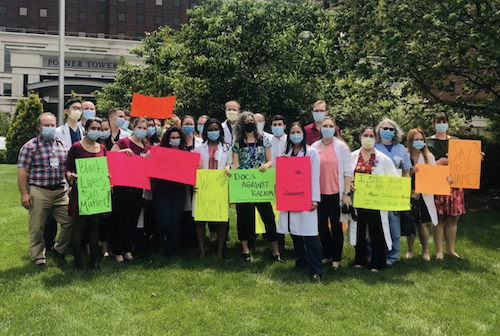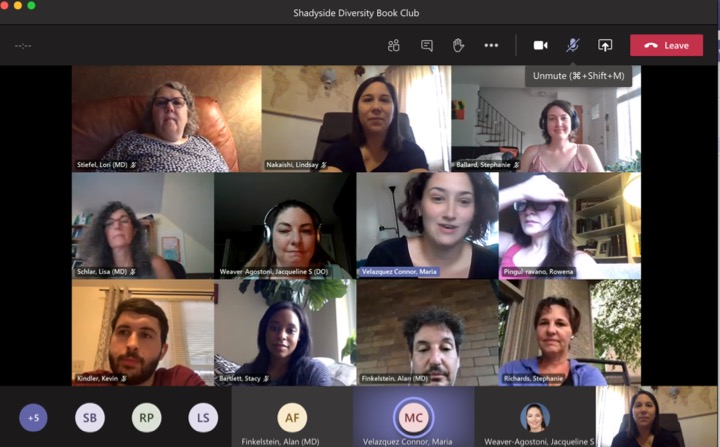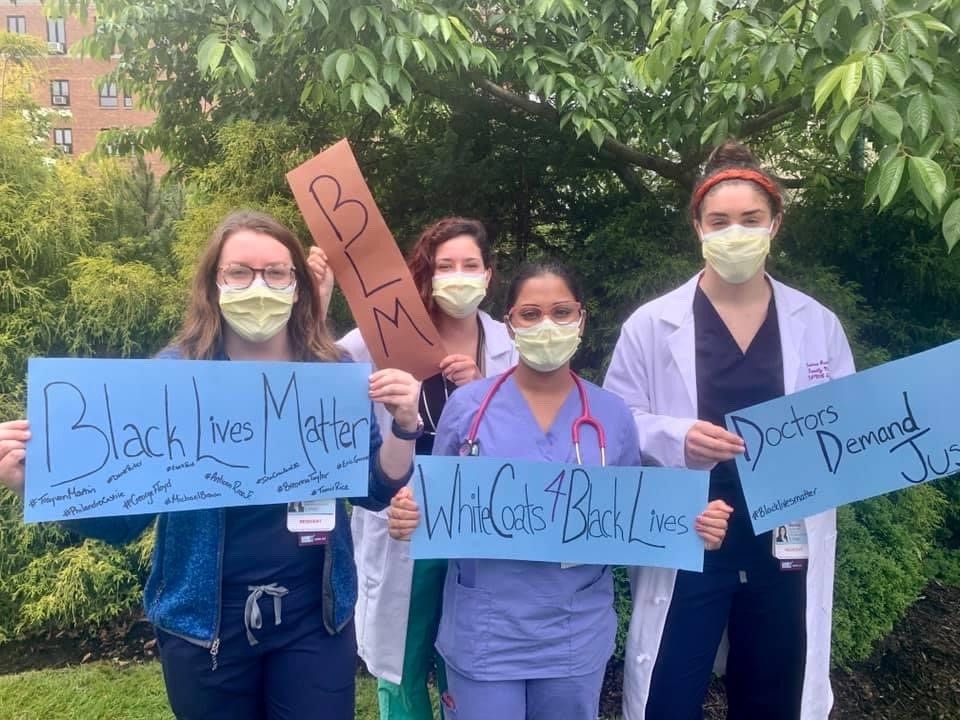Mission Statement
The UPMC Shadyside Family Medicine Team for Inclusion, Diversity, and Equity (TIDE) is committed to building a culture where diversity is valued and health disparities are reduced through enhanced health care education, inclusive patient care experiences, community partnerships, recruitment and retention of a diverse group of health care professionals and patient populations, and equity and social justice initiatives. Watch video.
Second Year Residents Display Their Signs in Support of White Coasts for Black Lives
Communities We Aim to Serve in Pittsburgh
- Black, indigenous, and people of color
- Immigrants and International individuals
- LGBTQ+ individuals
- Individuals with disabilities, including medically homebound
- Additional specific patient populations: Patients with obesity, substance use disorders, mental health disorders, housing insecurity, food insecurity, sex workers,

Our Faculty and Residents Participating in White Coats for Black Lives at UPMC Shadyside
TIDE is a multidisciplinary team comprised of family medicine physicians, behavioral health experts, social workers, office staff, pharmacists, and public health professionals within the UPMC Shadyside Family Medicine Residency program. This team was founded in 2020 following a call to action for justice and equity. We work to reshape the future of medicine by dismantling systems of oppression through action in these 5 domains:
- Enhanced communication that recognizes and addresses bias, discrimination, and racism
- Information identification and dissemination of articles/videos/podcasts that address cultural inequities
- Patient advocacy
- Policy reform targeting health equity
- Health equity curricula for physicians and staff
Currently, some of our activities include conducting an assessment of our office’s inclusivity through the eyes of our patients, hosting a book club with a focus on racial inequality, enhancing our recruitment of a diverse workforce, forming a patient advisory committee to identify and implement meaningful and impactful change, and developing a longitudinal, multifaceted health equity curriculum with a specific focus on implicit bias and antiracist education.


